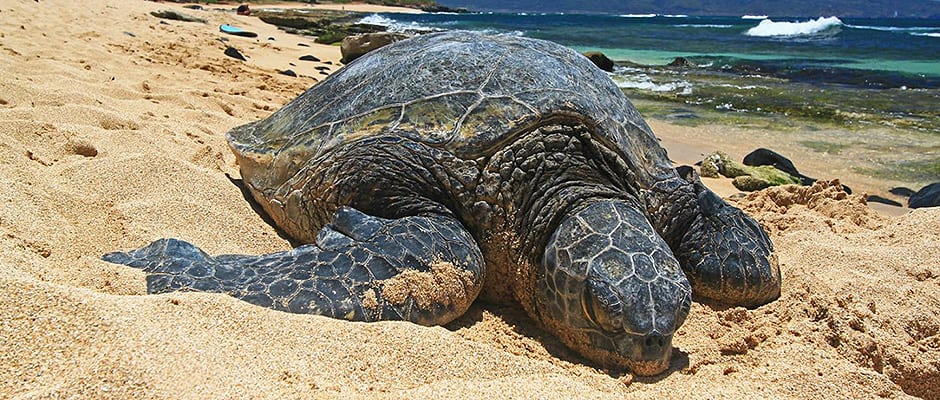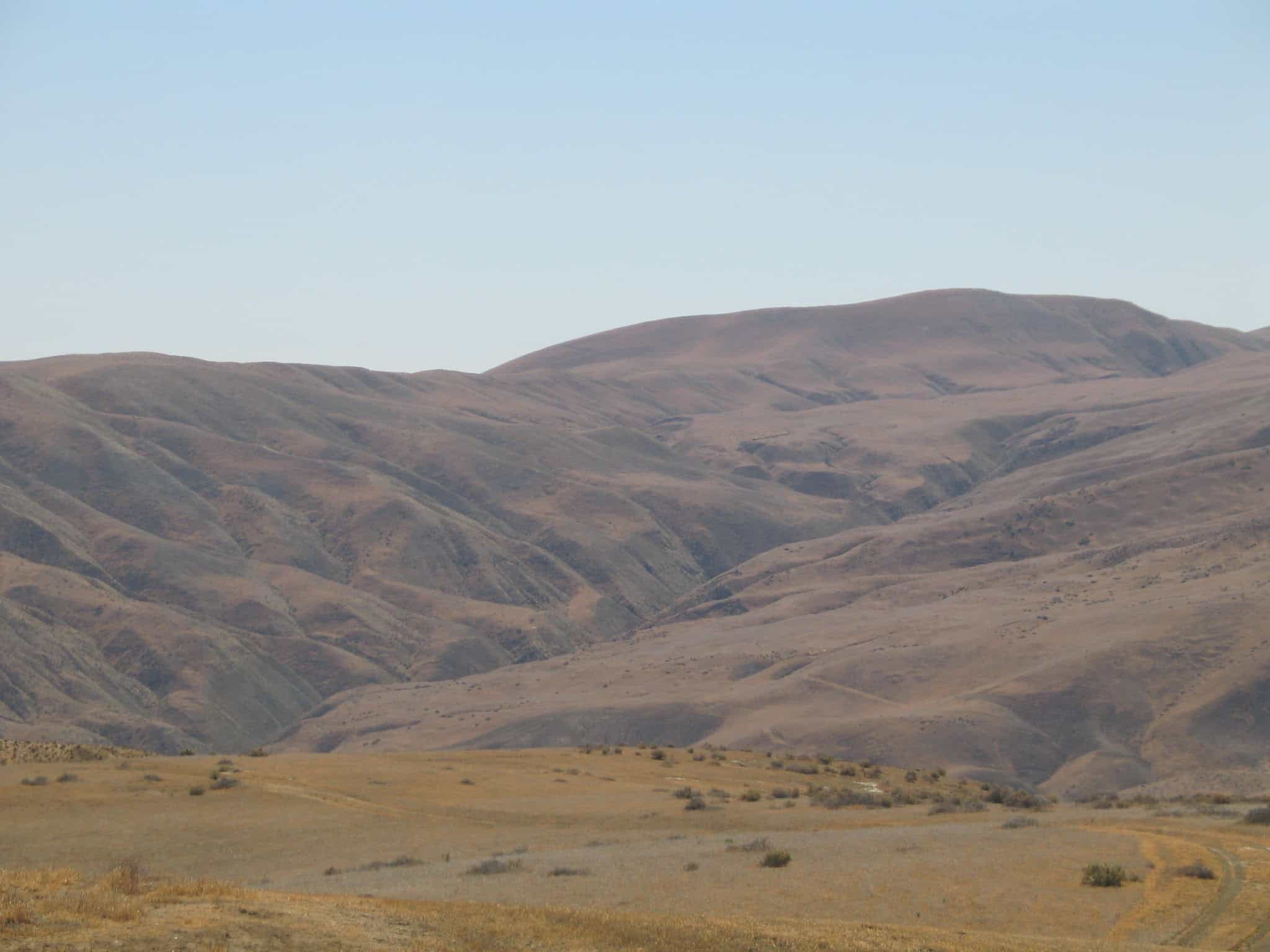Share this article
Warming Seas Could Stop Turtles From Hitting the Beach
As sea temperatures rise, life may no longer be a beach for green sea turtles who bask in Hawaiian sands, according to new research.
“Sea turtle basking is not common and really only happens in one species,” said Kyle Van Houtan, a research ecologist and sea turtle expert with the National Oceanic and Atmospheric Administration. The only populations of green sea turtles (Chelonia mydas) known to sunbathe are those around Hawaii, the Galapagos Islands and around Australia, he said.
Van Houtan and a team of researchers set out on to study the reasons these turtle populations behave this way, and whether climate change will influence this behavior. Their findings were published recently in Biology Letters.
“This is hauling out on a beach and just sitting there,” Van Houtan said of the turtles’ basking behavior “The question is: Why?”
The researchers found that the one of the most likely reasons the marine reptiles bask on the beach is to warm up from the cool seas. While we may not think of the seas around Hawaii or Australia as cold, the places where these turtles hang out are among the coldest waters the species is known to frequent.
“For those species it’s an extreme,” he said.None of the eight other known populations of green sea turtles bask on beaches.
The researchers also noticed that the turtles only tended to bask on Hawaiian beaches during seasons with colder water. “There was a pretty pronounced seasonality for it,” Van Houtan said.
Van Houtan also said that in many of these basking areas, the sea temperature is warming up by three times the global average. When the sea is above a temperature of around 73 degrees, the turtles no longer bask.
But this may not be good for beach-loving turtles. Van Houtan said that the basking could provide a host of other benefits to the turtles.
The added warmth could help them digest their food and extract more resources from it. “They basically have a big solar panel on their back,” he said. This, in turn, could accelerate their growth and allow them to mature faster. “They could be a more resilient population if you had earlier breeding and faster maturity.”
It also may help to kill oceanic parasites that live on their bodies and provide a solace from oceanic predators. Female turtles may hang out on the beach to escape the unwanted advances of frisky males.
“If they stop basking it could affect all of those things,” Van Houtan said, and he is concerned about what that could mean for these green sea turtle populations.
“People have always viewed this terrestrial basking by green sea turtles as curious, he said. “But it appears to have a very specific ecological function that is related to climate.”
Header Image:
This is a green turtle basking at Paia, Maui. The basking may help with digestion, development and growth and other things and researchers are worried that warming sea temperatures may lead to the turtles staying off the beach.
Image Credit: Chris Stankis








